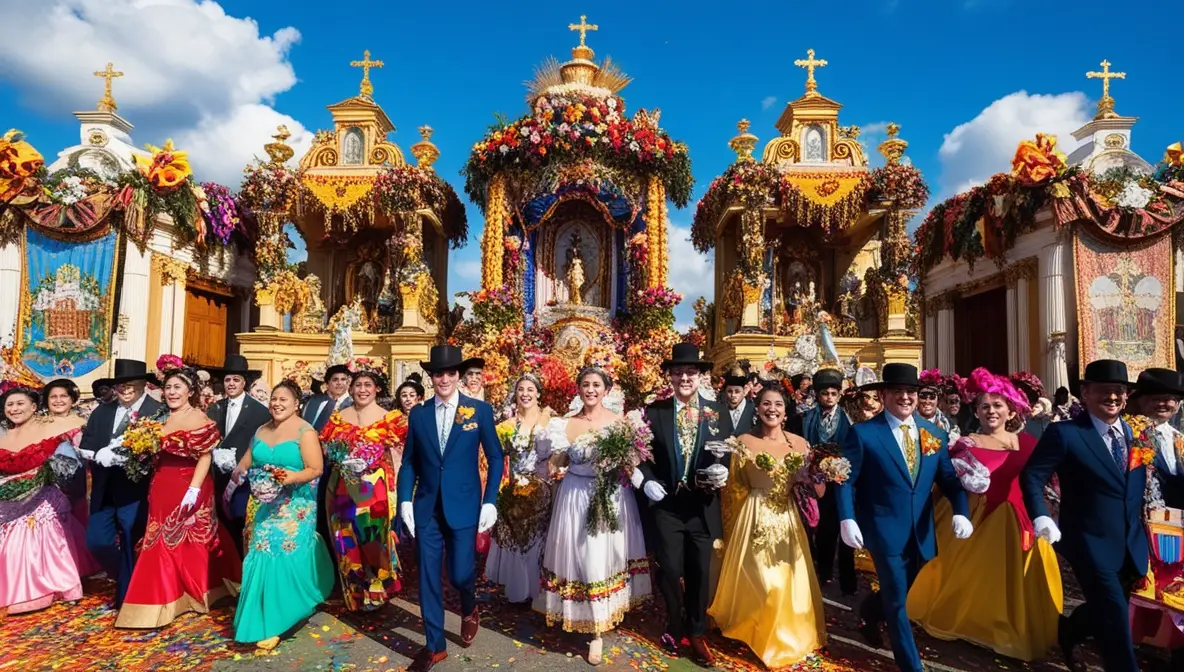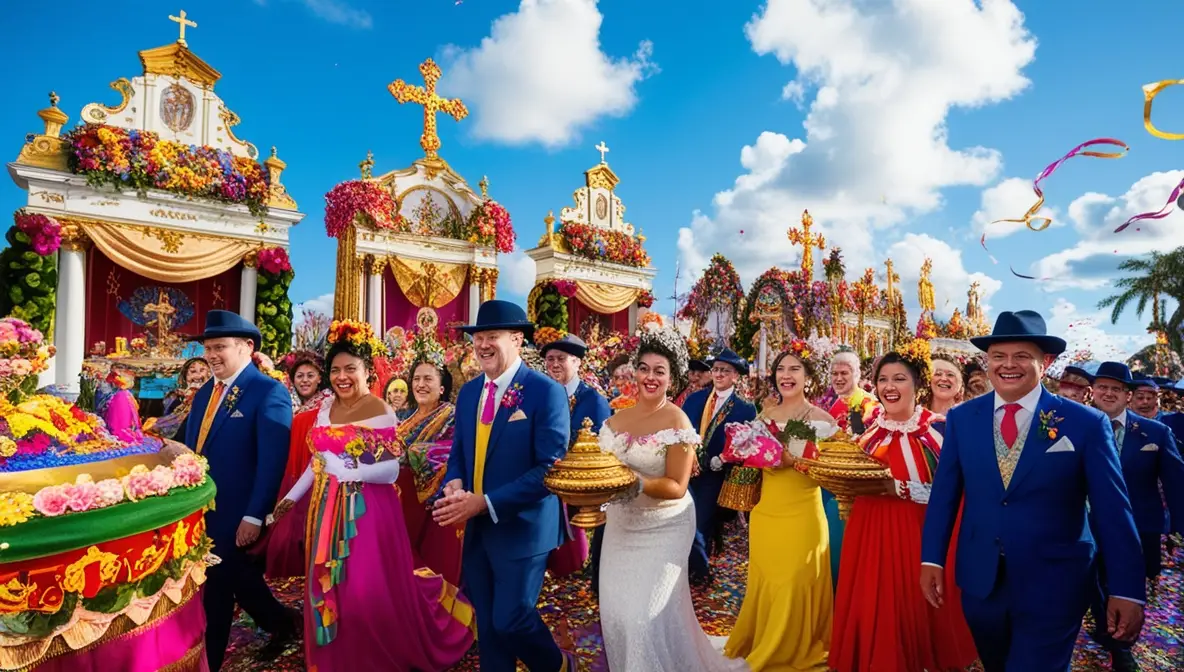Celebrating Corpus Christi: A Deep Dive into Its Significance
On May 30, 2024, Christians around the world will observe the Feast of Corpus Christi, a sacred event celebrated annually on the Thursday following Trinity Sunday. The term “Corpus Christi” is Latin for “Body of Christ,” symbolizing the belief that during Holy Communion, the bread and wine represent the actual body and blood of Jesus Christ. This feast offers a unique opportunity for the faithful to experience the presence of Jesus on Earth.

- Thursday, June 19 2025
- Thursday, June 04 2026
- Thursday, May 27 2027
- Thursday,June 15 2028
The Origins of Corpus Christi
The roots of Corpus Christi date back to the 13th century, when Italian priest St. Thomas Aquinas proposed to Pope Urban IV the establishment of a feast dedicated solely to the Holy Eucharist. The Eucharist, synonymous with Holy Communion, highlights the belief that Jesus is truly present in the bread and wine—a concept deeply rooted in the Last Supper, where Jesus shared bread and wine with his disciples.
One of the significant aspects of Maundy Thursday was the celebration of the Eucharist, which included rituals like foot washing and the commitment to priesthood. After confirming the authenticity of the Eucharistic Miracle of Bolsena, Pope Urban IV officially instituted the Feast of Corpus Christi in 1264, urging its observance throughout Roman Catholic Churches. Over the centuries, Pope Pius V refined the General Roman Calendar, retaining only two key feast days: Corpus Christi and Trinity Sunday.
Understanding the Eucharist
The Eucharist is one of the most revered sacraments in Christianity, originating from the Last Supper when Jesus instructed his disciples to partake in the bread and wine as symbols of his body and blood. This sacrament becomes a focal point during Mass, where the bread and wine are consecrated at the altar and consumed by the congregation, serving as a reminder of Jesus’ ultimate sacrifice.

Observing Corpus Christi
As a holy day of obligation, all Christians are encouraged to participate in the Mass on Corpus Christi. The day often features a vibrant procession, where parishioners come together to celebrate their faith. Churches and altars are adorned with beautiful flowers, tapestries, and banners, creating a festive atmosphere. In many traditions, four additional altars are set up along the procession route, each decorated with religious imagery and floral arrangements.
Gospel readings are an integral part of the celebration, and many attendees wear their finest communion attire. It is also customary for Catholics to receive communion on this day, with many children celebrating their First Communion during the festivities.
A Historical Note
The significance of Corpus Christi extends beyond religious observance; it has even influenced geography. In 1519, explorer Alonzo Pineda named a bay in Texas “Corpus Christi,” reflecting the feast’s profound impact.
The Feast of Corpus Christi is more than a religious observance; it is a celebration of faith, community, and the divine presence of Jesus Christ. As we prepare for this important day, let us reflect on its meaning and significance in our lives.


